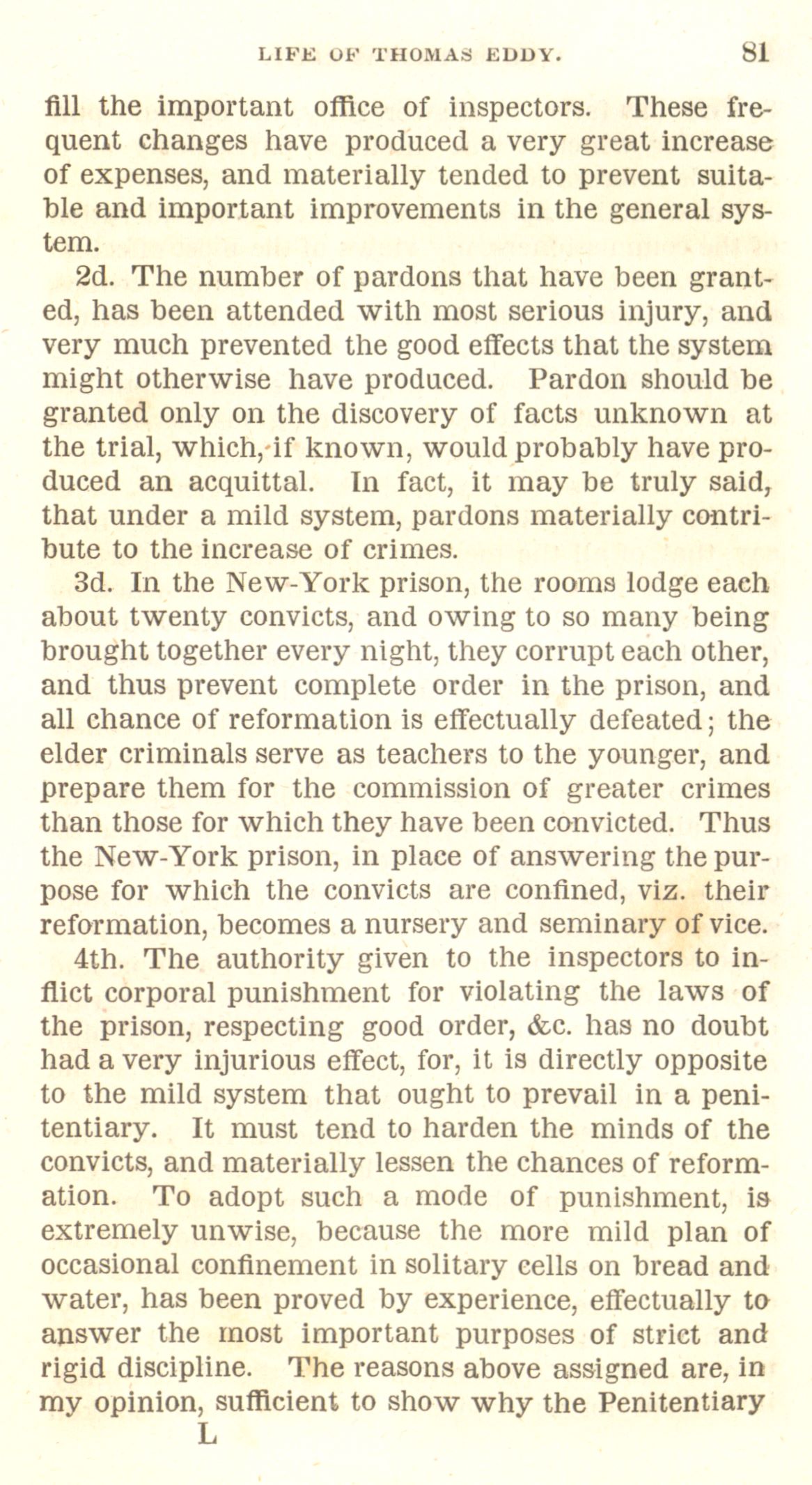fill the important office of
inspectors. These fre-
quent changes have produced a very great
increase
of expenses, and materially tended to prevent
suita-
ble and important improvements in the general
sys-
tem.
2d. The number of pardons that have been grant-
ed, has been attended
with most serious injury, and
very much prevented the good effects
that the system
might otherwise have produced. Pardon should
be
granted only on the discovery of facts unknown at
the
trial, which, if known, would probably have pro-
duced an acquittal.
In fact, it may be truly said,
that under a mild system, pardons
materially contri-
bute to the increase of crimes.
3d. In the New-York
about twenty convicts, and owing to so many being
brought together every night, they corrupt each other,
and thus prevent complete order in the prison, and
all chance of reformation is effectually defeated; the
elder criminals serve as teachers to the younger, and
prepare them for the commission of greater crimes
than those for which they have been convicted. Thus
the New-York
pose for which the convicts are confined, viz. their
reformation, becomes a nursery and seminary of vice.
4th. The authority given to the inspectors to in-
flict corporal
punishment for violating the laws of
the prison, respecting good
order, &c. has no doubt
had a very injurious effect, for, it is
directly opposite
to the mild system that ought to prevail in a
peni-
tentiary. It must tend to harden the minds of the
convicts, and materially lessen the chances of reform-
ation. To
adopt such a mode of punishment, is
extremely unwise, because the
more mild plan of
occasional confinement in solitary cells on bread
and
water, has been proved by experience, effectually to
answer the most important purposes of strict and
rigid discipline.
The reasons above assigned are, in
my opinion, sufficient to show
why the Penitentiary

